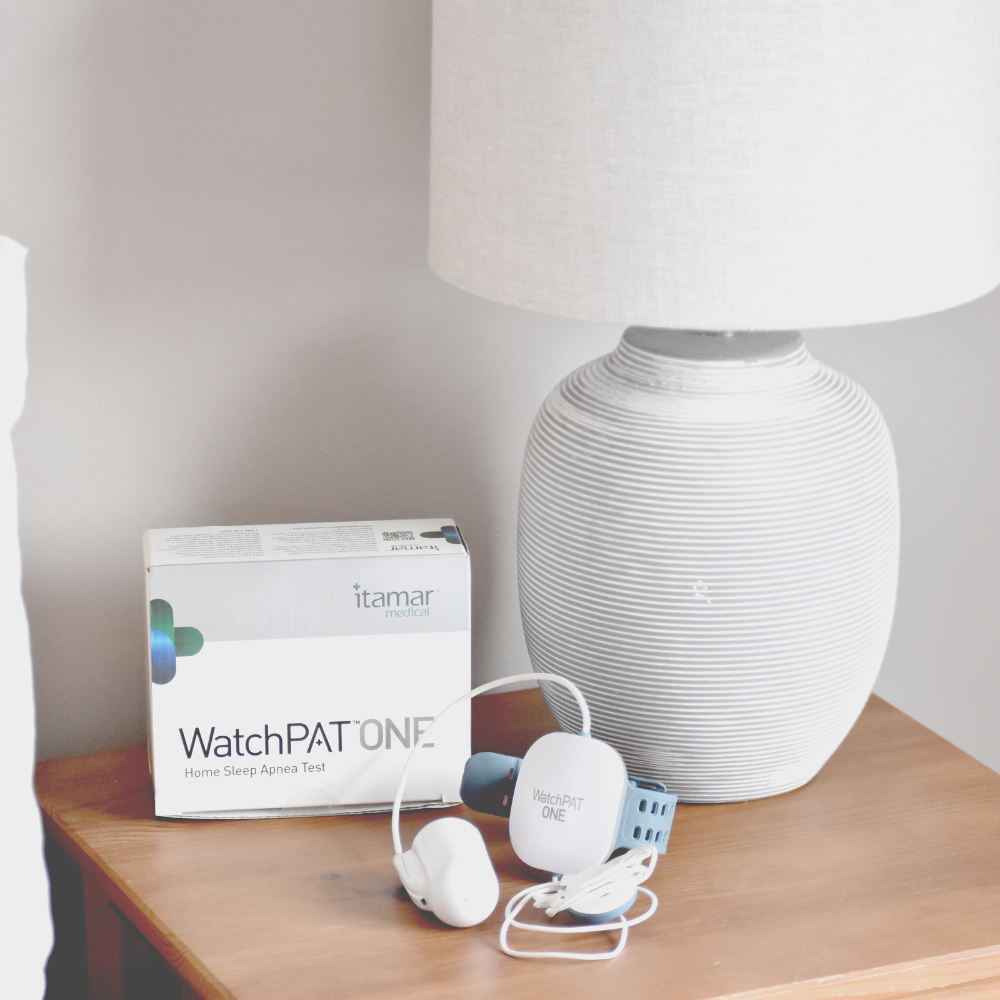Fact Checked
Intus Healthcare’s writers, customer service team, and sleep experts review and ensure this information is accurate.
Last updated on June 17th, 2024 at 03:29 pm
It is not uncommon for women to start snoring during pregnancy due to the various changes in the female body.
Research has found that up to 53% of women snore during pregnancy, and the rate increases as pregnancy progresses (1).
This article will examine the reasons for snoring in pregnancy, associated risks, and ways to prevent it.
What causes snoring in pregnancy?
Hormone Levels: Hormonal increases during pregnancy can make it more difficult to breathe through the nose during sleep. Raised levels of hormones such as oestrogen and, cause swelling and an increase in blood flow to the upper airways, contributing to snoring.
Weight: As body weight rises during pregnancy, extra tissue around the neck and throat can narrow the airways, increasing the likelihood of snoring.
Fluid Retention: During pregnancy, the body retains more fluid, leading to swelling, including the mucous membranes lining the nasal passages. This swelling can partially block the airflow through the nose, making it difficult for air to pass through and causing the soft tissues to vibrate, leading to snoring.
Changes in Respiratory System: During pregnancy, the respiratory system supplies more oxygen to the mother and the foetus. This adaptation may alter breathing patterns during sleep, potentially leading to snoring.
Sleeping Position: Sleeping on your back during pregnancy can restrict space in the upper airway, causing snoring.
Blood Flow: One of the numerous changes within a woman’s body during pregnancy is increased blood volume and flow. Blood volume increases by 30% to 50% to nurture the growing baby (2). However, the heightened blood flow can lead to inflammation of the tissue that lines the nasal cavity. It is often called “pregnancy rhinitis,” which results in nasal congestion and can make breathing difficult through the nose, inducing snoring.
When does snoring generally start during pregnancy?
Snoring and trouble breathing in pregnancy often start within the second trimester and can increase as the baby develops.
It’s important to note that not everyone snores during pregnancy or experiences breathing discomfort.
Does snoring get worse in pregnancy?
If you did or didn’t snore before becoming pregnant, there’s a good chance that your snoring will increase in frequency as your pregnancy progresses.
However, like many changes that happen during pregnancy, they often revert after giving birth. Snoring is usually one of these, with many women snoring when pregnant and stopping once they deliver their babies, usually due to the reduced weight on the airways.
Is snoring during pregnancy dangerous?
For most women, snoring during pregnancy is nothing to worry about. It is simply the body’s reaction to the increase in weight and hormonal changes that occur when growing and nurturing a baby.
However, research has found that snoring may increase the risk of adverse pregnancy outcomes (3).
Could it be an underlying problem?
Risk factors linked to snoring during pregnancy include:
- Obstructive Sleep Apnoea
- Preterm birth
- Preeclampsia
- Gestational diabetes
- Gestational hypertension (high blood pressure)
- Pre-natal depression
- Decreased foetal growth

Devices to stop snoring
We offer a variety of snoring products ranging from mouthguards and nasal dilators to anti-snoring pillows.
Snoring in pregnancy and Sleep Apnoea
Obstructive Sleep Apnoea (OSA) is a sleep condition caused by obstructions of the upper airway during sleep, which makes breathing difficult. The airway restrictions cause a person to stop breathing throughout the night.
The risk of developing Sleep Apnoea increases during pregnancy; OSA developed specifically in pregnancy is known as gestational Sleep Apnoea.
This increased risk is due to increased blood volume, weight gain, and hormonal changes. For example, higher progesterone levels can relax the airway and contribute to OSA. As your baby grows during pregnancy, it can put more pressure on your airways, making breathing harder at night. Additionally, physical changes, such as uterus enlargement, can put pressure on the diaphragm, affecting the respiratory mechanics and making breathing more difficult during sleep.
Research has found that as many as 26% of women experience OSA during their pregnancy (4). Additionally, the condition can raise the risk of gestational high blood pressure and gestational diabetes (5).
Snoring is one of the common symptoms of Sleep Apnoea, as it is associated with a blocked airway.
Other symptoms include:
- Morning headaches
- Daytime fatigue
- Forgetfulness
- Choking in sleep
- Teeth grinding
- Frequent nighttime urination
A deviated septum and a higher BMI before pregnancy may also increase the likelihood of developing OSA.

How do I know if I have Sleep Apnoea during pregnancy?
It is important to note that not everyone who snores has Sleep Apnoea. However, if you have symptoms, a Home Sleep Test is the fastest way to determine if you are pregnant with Sleep Apnoea.
The simple test is non-invasive and takes just one night to complete.
How do you stop snoring during pregnancy?
There are many different treatments, products and natural remedies to help stop snoring.
10 Ways to help you stop snoring
Saline sprays: Natural saline sprays or a nasal irrigator system can help to open your airways by clearing mucus.
Nasal dilators: If you suffer from nasal congestion, nasal dilators can help by gently opening the nasal passages.
Anti-snoring pillow: A pregnancy pillow or an anti-snoring pillow can minimise snoring. The pillows help to keep you sleeping on your side and open the airway if snoring is caused by sleeping on your back.
Nasal strips: These strips are applied to the nasal bridge to widen the nasal passages and increase airflow.
Regular exercise: Regular, moderate exercise (as recommended by a healthcare provider) can help maintain a healthy weight and reduce the severity of snoring during pregnancy.
Elevate your head: Using extra pillows to elevate the head can help keep the airways open by preventing the tongue from falling back into the throat.
Meal timings: Avoid heavy meals and dairy products close to bedtime, as they can increase mucus production and contribute to congestion.
Hydration: Drinking plenty of fluids thins nasal mucus, reduces congestion, and reduces snoring.
Mouthguards: A Mandibular Advancement Device (MAD) is a mouthguard moulded to your mouth. The device gently pulls the lower jaw forward, creating space in the back of the throat to prevent an apnoea event or snoring. These are typically recommended to those with milder cases of Sleep Apnoea and are suitable anti-snoring devices.
CPAP Machine: Continuous Positive Airway Pressure (CPAP) Machines are the gold-standard treatment method for Sleep Apnoea. The device provides continuous airflow to open your airway, preventing breathing obstructions and reducing snoring. If you have OSA during pregnancy, you may also consider combining it with a CPAP pillow. These pillows help you sleep comfortably on your side.
Implementing these tips can help alleviate snoring during pregnancy, improving sleep quality. However, as all pregnancies differ, these options should only be used if your healthcare provider recommends them.
Summary
Snoring is common during pregnancy; if it is often nothing to worry about, please contact your healthcare provider if you think it could be a sign of a health condition.
We specialise in Sleep Apnoea testing and treatment; if you’d like advice on OSA, please contact us for support.
References
1.Louis, J., & Pien, G.W. (2022, September 22). Obstructive sleep apnea in pregnancy. In V. Berghella & N. Collop (Eds.). Available at: https://www.uptodate.com/contents/obstructive-sleep-apnea-in-pregnancy. Accessed: 09.05.2024
2.Mayo Clinic Staff. Pregnancy Week by Week. Available at: https://www.mayoclinic.org/healthy-lifestyle/pregnancy-week-by-week/in-depth/pregnancy/art-20045977. Accessed: 09.05.2024
3.Ge, X., Tao, F., Huang, K., Mao, L., Huang, S., Niu, Y., Hao, J., Sun, Y., & Rutayisire, E. (2016). Maternal Snoring May Predict Adverse Pregnancy Outcomes: A Cohort Study in China. PLOS ONE, 11(2), e0148732. Available at: https://doi.org/10.1371/journal.pone.0148732. Accessed: 09.05.2024
4. Dominguez, J. E., Street, L., & Louis, J. (2018). Management of Obstructive Sleep Apnea in Pregnancy. Obstetrics and Gynecology Clinics of North America, 45(2), 233. Available at: https://www.ncbi.nlm.nih.gov/pmc/articles/PMC5995135/. Accessed: 09.05.2024.
5.LUNGEANU-JURAVLE, L., PATRASCU, N., DELEANU, O. C., & CINTEZA, M. (2016). The Role of Obstructive Sleep Apnea in Developing Gestational Hypertension and Preeclampsia. MæDica, 11(4), 330-333. Available at: https://www.ncbi.nlm.nih.gov/pmc/articles/PMC5543527/. Accessed: 09.05.2024.




